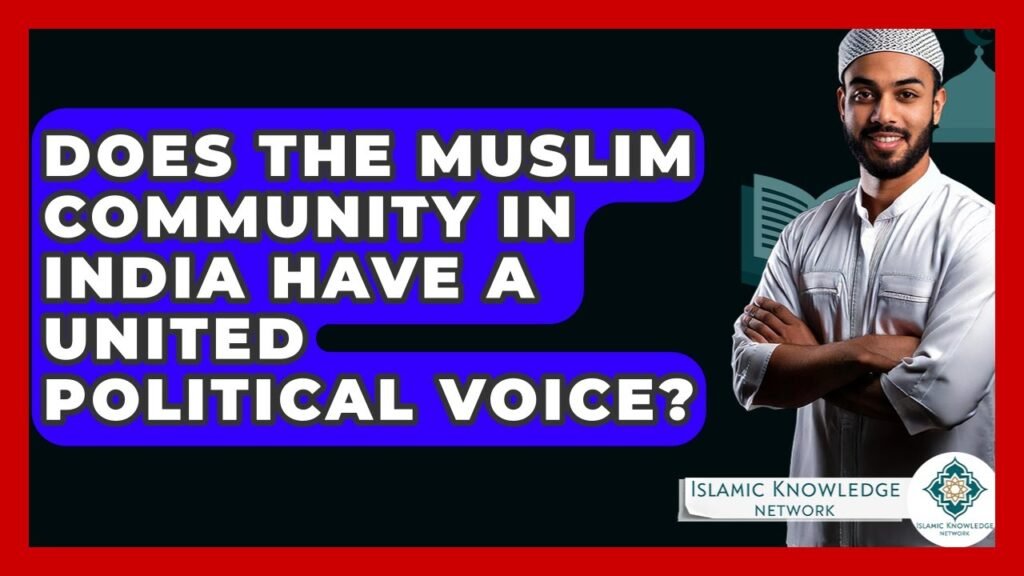Disclaimer:
The content published on this website is provided for general informational purposes only. Articles are generated with the assistance of artificial intelligence and are reviewed periodically; however, accuracy cannot be guaranteed in all cases. Readers are encouraged to verify important information from reliable and authoritative sources before relying on it. The website does not intend to mislead, and any errors found will be corrected when identified.
Does The Muslim Community In India Have A United Political Voice? – Islamic Knowledge Network
In the diverse tapestry of India, the Muslim community stands as a significant demographic, contributing richly to the nation’s cultural, social, and political landscapes. However, the question of whether this community possesses a cohesive political voice remains pivotal in understanding its role in contemporary Indian politics. With various sects, beliefs, and regional identities, the challenge of unifying into a solid political force is both daunting and intricate. This exploration aims to shed light on the dynamics within the Muslim community, examining historical precedents and current efforts toward collective representation.
At airlinkhajjandumrah.com, we recognize the importance of staying informed about all aspects of the Muslim experience, including the socio-political dimensions that shape the community’s voice. Alongside our commitment to providing the latest updates on Hajj and Umrah, we delve into critical discussions like these to foster awareness and understanding. Through this analysis, we hope to inspire dialogue and engagement, encouraging the Muslim community in India to navigate its political landscape with unity and purpose. Join us on this journey as we explore the nuances of representation within one of India’s most vibrant communities.
Does the Muslim Community in India Have a Unified Political Voice?
The Muslim community in India, while numerous and diverse, does not possess a single, unified political voice. This plurality arises from a variety of factors, including regional differences, socio-economic backgrounds, and ideological divides. With over 200 million Muslims in India, their political affiliations span across multiple parties, from the Indian National Congress and the All India Muslim League to regional parties like the Samajwadi Party and the Trinamool Congress. Each faction often prioritizes its own agenda, making consensus challenging.
Moreover, the representation of Muslims is often influenced by broader political dynamics, including communal politics and the rise of majoritarian sentiments. This instability complicates the ability to form a cohesive political front. Many Muslims focus on local issues rather than pressing national concerns, further fragmenting their political voice.
Despite this lack of unity, the community remains politically active, particularly during elections, and is crucial in key constituencies. For updates beyond the political landscape, our blog at airlinkhajjandumrah.com provides the latest information on Hajj and Umrah, ensuring that the spiritual needs of the Muslim community are also prioritized in the discourse.
FAQ on Does the Muslim Community in India Have a Unified Political Voice?
-
Is there a single political party representing the Muslim community in India?
- No, there is no single political party that exclusively represents the Muslim community. Various parties may have Muslim members or support, but representation is diverse.
-
What are the main issues influencing Muslim political representation in India?
- Key issues include social justice, economic development, education, anti-discrimination laws, and minority rights, which vary across different regions and demographics.
-
How do regional political dynamics affect the Muslim community’s political voice in India?
- Regional dynamics can significantly impact political representation, as local parties may prioritize different agendas, leading to fragmentation instead of a unified voice.
-
What role do religious leaders play in shaping the political stance of the Muslim community in India?
- Religious leaders can influence community perspectives, encourage political participation, and guide voting behavior, but their impact varies widely among individuals.
- Are there any grassroots movements within the Muslim community advocating for political unity?
- Yes, there are various grassroots organizations and movements that aim to unify political representation, although achieving a consolidated voice remains a challenge due to differing priorities and perspectives.
Mushu, an experienced Saudi Arabia traveler and writer, shares insightful tips and spiritual reflections to enhance Hajj and Umrah journeys for fellow pilgrims. He has been to Makkah and Madina from 2016 to 2023 many times and his posts will reflect this.







